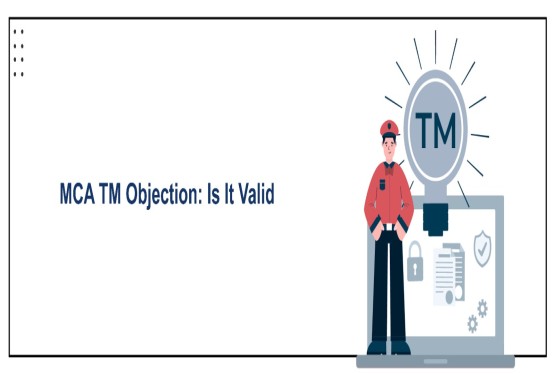Physically keeping shares has become antiquated and inconvenient in the age of digitization and smooth trade. Physical share certificates were traditionally given to investors in India as evidence of ownership. However, trading these paper certificates was a time-consuming and laborious procedure, and they were vulnerable to loss, damage, falsification, or misplacement. The Securities and Exchange Board of India (SEBI) ordered the switch from physical to dematerialized (demat) shares in order to remove these obstacles and improve the securities market's efficiency and transparency. Similar to how funds are kept in a bank account, shares are retained electronically in a Demat Account under this arrangement. With effect from April 1, 2019, SEBI has further tightened compliance by prohibiting the transfer of physical shares unless they are transformed into demat form. In order to legally transfer, trade, or even claim corporate benefits like dividends, rights, and bonuses, investors who still possess old physical share certificates must convert them into demat form.
What is Demat Form ?
An electronic account that enables investors to retain shares and assets in a digital format is called a Demat Account, short for Dematerialized Account. It ensures safe, paperless, and hassle-free investment administration by doing away with the need for physical certificates. There are two primary depositories in India that manage demat accounts:
-
National Securities Depository Ltd., or NSDL
-
Central Depository Services Limited, or CDSL,
These depositories operate via middlemen called Depository Participants (DPs), who might be banks, brokers, or other financial organizations that offer investors account services. An investor is given a unique Demat Account Number when they register a demat account with a DP. This number is used to hold and trade securities such as bonds, mutual fund units, equity shares, debentures, and exchange-traded funds (ETFs). A demat account digitally saves your stocks, enabling simple access, tracking, and transfer at the touch of a button, much like a bank account does. The first and most important step in changing physical shares into electronic form is opening a demat account.
Why it is important to convert Physical shares into Demat Form?
Adherence to Regulations
All share transfers must be completed in demat form, under the Securities and Exchange Board of India's (SEBI) mandate. Companies are no longer permitted to accept requests for the physical transfer of securities as of April 1, 2019.
Increased Security
Physical share certificates are vulnerable to fabrication, mutilation, theft, and loss. Such dangers are eliminated by holding demat shares electronically in safe depositories like NSDL or CDSL.
Simple Transfer and Flow
In contrast to the laborious physical method, shares in demat form can be readily transferred or exchanged through online platforms, providing higher liquidity and speedier settlement.
Simplified Business Procedures
To provide efficiency and prompt access, dividends, bonus shares, rights issues, and other business benefits are automatically credited to the shareholder's associated bank or demat account.
Economical and Paperless
Dematerialization cuts down on the amount of paperwork, transportation fees, and time spent handling paper certificates. It is a cost-effective and environmentally responsible way to hold shares.
Monitoring Portfolios and Openness
Through a single demat account, investors may conveniently and transparently track their assets, receive consolidated account statements, and keep an eye on gains and losses.
Important to Inheritance and Transmission
Unlike physical shares, which frequently encounter ownership conflicts or delays, demat shares can be transferred in the event of succession with less paperwork and legal obstacles.
Step by Step procedure for the conversion of physical shares to Demat form
-
First, create a Demat account with the DP (Depository participant) DP can be bank, broker, financial institution.
-
Obtain DRF (Dematerialisation Request Form) contact your chosen DRF request.
-
Fill out DRF it contains details of your physical share certificate including number of shares company name, distinctive number.
-
Surrender share certificate on each surrendered share write Surrendered for Dematerialisation.
-
Processing Depository participant will verify the document and send them to company registrar and transfer agent.
-
Dematerialisation once approved share will be dematerialised.
Documents required for the Conversion of shares into demat form
-
Original Share Certificates: Submit the physical share certificates you intend to convert. Ensure that the details such as shareholder name, folio number, and number of shares are clearly visible and that the certificates are in good condition.
-
Dematerialisation Request Form (DRF): Fill out the DRF provided by your Depository Participant (DP). If you hold shares in multiple companies, separate forms must be submitted for each. For instance, if you own shares in two different companies, you’ll need to submit two different DRFs.
-
Bank Account Proof: A recent bank statement or a copy of your passbook (issued within the last three months) is needed to verify your account details, which will be linked to your demat account for dividend and payment credits.
-
Identity Proof with Photograph: Submit a government-issued photo ID, such as your PAN card, Aadhaar card, voter ID, or driving license, to establish your identity.
-
Address Proof: Provide valid proof of residence, which could include a utility bill (electricity, gas, landline), passport, lease/rent agreement, maintenance receipt, or insurance documents bearing your current address.
-
Endorsement on Certificates: On each physical share certificate, write the words "Surrendered for Dematerialisation" before submitting them to the DP. Also, ensure you collect an acknowledgement receipt for the shares handed over.
Legal provisions regarding the conversion of Physical shares to Demat form
Section 29(1)(b) of the Companies Act of 2013 states that securities must be offered publicly in dematerialized form requires that all companies issuing securities in a public offering do so only in dematerialized form and in the way that may be specified. Rule 9A of the 2014 Companies (Prospectus and Securities Allocation) Rules applicable to publicly traded firms that are not listed, requiring them to: Make it easier for all current securities to be dematerialized. Make sure that, as of October 2, 2018, no securities may be transferred unless they are held in dematerialized form. Get an ISIN from a repository and make sure the registrar is linked.
Section 6 of the Depositories Act of 1996: Dematerialization of Securities stipulates that a shareholder may choose to convert their company's securities into dematerialized form by turning in their certificate to the issuer or registrar. Section 10: Beneficial Owner's Rights guarantees that the beneficial owner of dematerialized securities will be liable for all debts and have all rights and benefits related to the securities retained.
Regulation 39(2) of the SEBI (Listing Obligations and Disclosure Requirements) Regulations, 2015 Securities must only be transferred in dematerialized form, according to listed entities' registrars and transfer agents. Except for transmission or transposition, physical transfers are not allowed. Circular from SEBI dated March 27, 2019 mandates that all transfers be made in demat form and forbids the physical transfer of shares as of April 1, 2019.
The 1961 Income Tax Act
The Income Tax Act considers shares held in demat form to be capital assets, even if they have nothing to do with the demat procedure. For tax purposes, investors must keep track of their acquisition records in order to calculate capital gains, particularly when converting physical shares that were purchased years ago.
Importance and Challenges in Conversion of Physical Shares to Demat Form
-
Regulatory Compliance Mandate As per SEBI regulations and Rule 9A of the Companies (Prospectus and Allotment of Securities) Rules, 2014, transfer and issuance of securities by unlisted public companies must be effected only in dematerialised form. SEBI also disallowed physical transfer of listed securities w.e.f. April 1, 2019. Hence, dematerialisation is no longer optional but a statutory requirement for ensuring transferability and legality of ownership.
-
Legal Recognition of Ownership Under the Depositories Act, 1996, only the beneficial owner in the records of the depository is entitled to exercise rights over securities. Holding shares in demat ensures legal clarity of title and ownership, which is critical during transmission, succession, or pledging.
-
Reduction in Risks and Fraud Physical share certificates are prone to theft, loss, forgery, mutilation, and duplication. Dematerialisation removes these risks by ensuring secure electronic storage of ownership records within SEBI-regulated depositories like NSDL and CDSL.
-
Faster and Efficient Transactions Transfers, pledges, and corporate actions (like dividends, rights issues, bonus shares) are seamlessly executed in the demat system without manual paperwork. This enhances transparency, operational efficiency, and timeliness.
-
Ease in Succession & Transmission Transmission of demat shares requires fewer documents, especially in case of nominee registration, thereby facilitating smoother inheritance procedures than physical shares.
Common mistake while converting shares into demat form
Inconsistency in Name or Signature
Inconsistencies between the name and signature on the actual share certificate and those in the demat account or PAN records are among the most common mistakes. If this discrepancy is not fixed with the appropriate affidavit, indemnity bond, or supporting KYC documentation, the dematerialization request will be denied.
Incomplete KYC or PAN non-availability
Shareholders must submit a valid PAN and all necessary KYC documentation, including Aadhaar, proof of address, and bank account information, in accordance with SEBI standards. The DRF application becomes non-compliant and may be rejected if this criteria is not met.
Providing Certificates That Have Been Tampered With or Defaced
If a share certificate is ripped, altered, overwritten, or unreadable, the Registrar and Share Transfer Agent (RTA) has the right to reject it. Original certificates that have not been altered must be sent in for verification.
Processing delays or outright rejections by the DP or RTA
May result from inaccurate or incomplete DRF Form errors, such as missing information, overwriting, or an invalid ISIN.
Inability to Match Joint Holder Information All holders of jointly owned shares are required to have demat accounts with the same names listed on the actual share certificate. Rejection will occur if the names are not in the correct order or if there is no joint demat account.
Get in touch today for end-to-end assistance in Dematerialisation of Shares, investor compliance, and corporate legal services.
Contact Us| info@ccoffice.in | +91-9988424211
Secure your securities. Stay compliant. Act now.
FAQ’s
Q1. Is dematerialisation of physical shares mandatory?
Ans. Yes. As per SEBI Circular dated March 27, 2019, transfer of securities in physical form is not permitted with effect from April 1, 2019. Therefore, shareholders intending to transfer, sell, or pledge their physical shares are required to first convert them into dematerialised form.
Q2. Can I continue to hold shares in physical form if I do not intend to sell them?
Ans. While holding physical shares is not illegal, it is strongly discouraged due to restrictions on transferability, lack of liquidity, and non-eligibility for most corporate actions. Moreover, certain classes of companies (e.g., unlisted public companies) are mandated under Rule 9A of the Companies (Prospectus and Allotment of Securities) Rules, 2014, to dematerialise all securities.
Q3. What documents are required to convert physical shares into demat form?
Ans. Duly filled Dematerialisation Request Form (DRF) Original share certificates Copy of PAN and Aadhaar Recent passport-size photograph Address and bank proof (e.g., cancelled cheque) Signature of all joint holders, if applicable
Q4. Can shares held jointly be dematerialised?
Ans. Yes, but all joint holders must have a demat account in the same order of names as mentioned on the physical share certificate. Additionally, all joint holders must sign the DRF and provide requisite KYC documentation.
Q5. What is the timeline for the dematerialisation process?
Ans. Upon submission of a complete and valid request, the process generally takes 15 to 30 working days. The timeline may vary depending on the Depository Participant (DP), Registrar and Share Transfer Agent (RTA), and correctness of documents submitted.
Q6. Is it possible to dematerialise shares of an unlisted company?
Ans. Yes, provided the unlisted company has obtained an ISIN from a depository (NSDL/CDSL) and has appointed a Registrar and Transfer Agent (RTA). Under Rule 9A, unlisted public companies are required to facilitate dematerialisation of all their securities.
Q7. Can I dematerialise shares of a deceased person?
Ans. Before dematerialisation, the transmission of shares must be completed in favour of the legal heir(s) or nominee. Once the transmission is recorded by the RTA and new physical certificates are issued in the heir’s name, the shares may then be dematerialised.
Q8. What are the charges for dematerialisation?
Ans. While the charges vary among DPs, most impose a nominal fee per certificate or per folio. Additionally, there may be Annual Maintenance Charges (AMC) for the demat account, depending on the DP’s tariff plan.
Q9. What happens if my demat request is rejected?
Ans. If your request is rejected due to errors (e.g., mismatch in name, incomplete form), you will be informed by your DP. You must rectify the issue and reinitiate the DRF. Rejection does not affect your ownership but may cause processing delays.
Q10. Where can I open a demat account online?
Ans. You may open a demat account with any SEBI-registered Depository Participant. Popular options include: Zerodha Angel One HDFC Bank NSDL.











































































_crop10_thumb.jpg)


































































_crop10_thumb.jpg)
_crop10_thumb.jpg)



_crop10_thumb.jpg)


_crop10_thumb.jpg)





_crop10_thumb.jpg)

_crop10_thumb.jpg)














-suratgujarat-section-158_crop10_thumb.jpg)
-suratgujarat_crop10_thumb.jpg)
-(33)_crop10_thumb.jpg)



-ahmedabad_crop10_thumb.jpg)
-learn_crop10_thumb.jpg)

-learnn_crop10_thumb.jpg)



























































_crop10_thumb.jpg)























_Guidelines_learn_crop10_thumb.jpg)























_learn_crop10_thumb.jpg)
_crop10_thumb.jpeg)










_crop10_thumb.jpg)




_Second_Amendment_Rules,_2025_learn_crop10_thumb.jpg)







_learn_crop10_thumb.jpg)











































_learn_crop10_thumb.jpeg)























_learn_crop10_thumb.jpg)



_rd_roc_learn_crop10_thumb.jpg)
















_learn_crop10_thumb.jpg)














_learn_crop10_thumb.jpg)
_Learn_crop10_thumb.jpg)











































_learn_crop10_thumb.jpg)




_learn_crop10_thumb.jpg)













_crop10_thumb.jpeg)




















